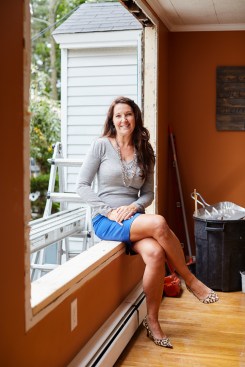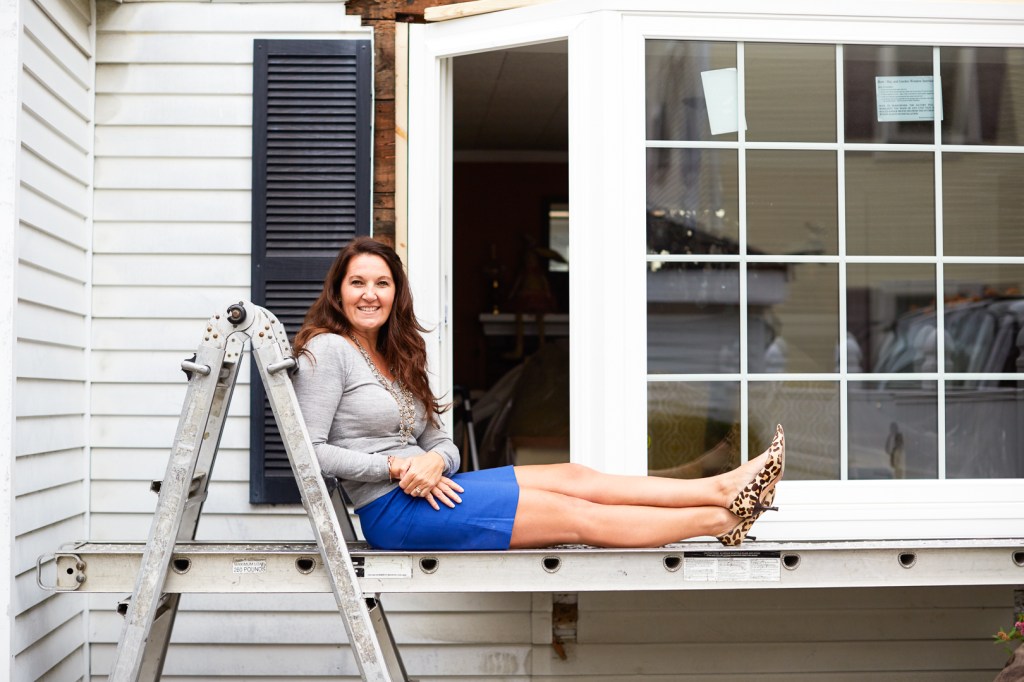For Stephanie Vanderbilt, owner of Coastal Windows and Exteriors in Beverly, Mass., running a successful remodeling company centers on two key components: empathy and education. Luckily for her, those are two things she’s passionate about. Leaving her career as a teacher of the deaf to run a remodeling company with her husband David, who was ready to strike out on his own after 20-plus years as a contractor, was a difficult decision for Vanderbilt. Then she realized she didn’t have to leave education behind—she had a new channel for it.
“When you have a passion for something, it’s always going to shine through,” Vanderbilt says. That passion has infiltrated every aspect of Coastal’s business plan—and it’s hard to argue with the results. Since its founding in 2010, the company has grown to bring in more than $3 million in revenue in 2015 and collected numerous accolades, including being named to this year’s Remodeling Big50 class and as a finalist for the Fred Case Remodeling Entrepreneur of the Year Award.
Vanderbilt describes Coastal as being guided by a set of core values, informed both by David’s experience in the industry and her own business philosophies, that put the customer first. “We’re homeowners too,” Vanderbilt says. “We understand what it’s like to have high energy bills or what it’s like to wait for a contractor that’s not calling you back.” She was determined that Coastal would give homeowners a different kind of experience—and relies on those two primary tenets of empathy and education to make that a reality.
Valuing the Customer
To create a positive customer experience, Vanderbilt eschews what she calls the “used-car salesman” tactics that give some contractors a bad reputation, and makes it a priority to never blindside clients. “You have companies that will do the bait and switch,” she says. “They say, ‘Come on down to get our $199 window,’ and then you get down there and it doesn’t even include a frame.”
Salespeople at Coastal must sign a “Customer Respect/No Pressure Agreement,” in which they commit, among other things, to sell at a fair price, to provide education on all possible solutions for a homeowner’s project, and to respect a customer’s decision if they opt to not move forward with a sale. “We pretty much hire based on this,” Vanderbilt says. “If you’re not [going to sign it], you’re just not going to work here.”
Coastal doesn’t just talk the talk when it comes to customer satisfaction; the company also walks the walk with a “don’t pay until you’re satisfied” policy. Upon completion of a project, the installer will go through the final punch list with the customer and answer any questions before they sign Coastal’s Certificate of Customer Satisfaction and provide payment—any issues or outstanding service are documented in a signed agreement.
Vanderbilt admits the policy might sound crazy to some, but she calls “putting her money where her mouth is” a major boost to building trust with the customer. “We’ve only had one person who didn’t pay,” she says. “One person that owed $6,000. There was no service [left to perform], but they didn’t pay, and we just kind of wrote it off and moved past it.”

Carl Tremnlay
Teaching Success
In addition to making service a priority, Vanderbilt takes pride in the quality of Coastal’s products, selected for high performance and long lifespan. Using energy-efficient products and sustainable practices is important to Vanderbilt not only to minimize the environmental impact, but to provide the maximum benefit to the homeowner. And helping homeowners truly understand those benefits comes back to education.
Vanderbilt works with product representatives and with each vendor’s national marketing reps to stay apprised of the latest news for the products they offer, including awards like door manufacturer ProVia’s honor of Energy Star Partner of the Year. The next step after having those facts, she says, is learning how to use that information to benefit homeowners and make the sale. This is especially important for customers who may be put off by the higher cost.
“You have to relate a feature to a benefit. You have to get on their level,” she says. “If I said to you, ‘Well this window leaks .01 CFM,’ you don’t know what that means. So I’m going to relate it to a soda can. This window, 18 soda cans leak per minute; this window, one-eighth of a soda can leaks per minute. You can visualize how much air that is.”
Of course, to impart those lessons to homeowners, the staff needs to learn them first. To that end, Coastal holds weekly training sessions, where the team meets to discuss anything from new product benefits to research from associations like NARI. “Every week it’s something new,” Vanderbilt says.
In a recent session, the Coastal staff discussed coverage in local papers after the company’s recent build with Habitat for Humanity. Community service is a big part of the company’s identity; last year it won the Dealer of the Year award from Window and Door magazine for its community service initiatives.
Not only do salespeople benefit from the increased exposure—“Obviously they love it because they go in the house and it’s ‘Oh I know you, you were on the front page of the paper,’” Vanderbilt says—it provides another opportunity for her to put empathy and education into practice. Coastal is able to help people in need, and by inviting members of the community, including schools, to these events, Vanderbilt is able to teach them about the project and home maintenance.
In describing her business, Vanderbilt mentions a saying that’s become a common refrain at Coastal: “Once a teacher, always a teacher.” Though she says it somewhat in jest, it’s obvious that she has taken its meaning to heart—and that it’s paying off.
